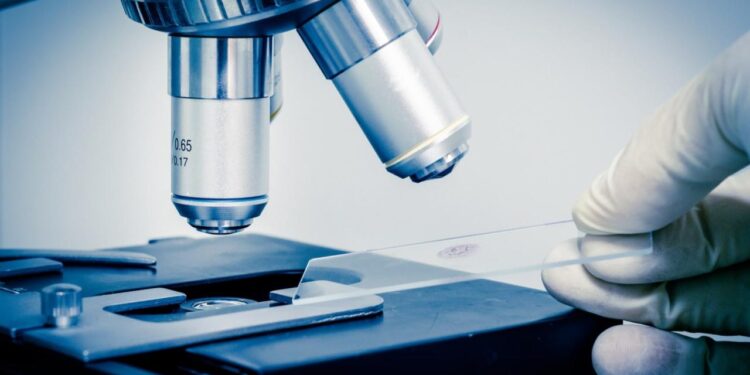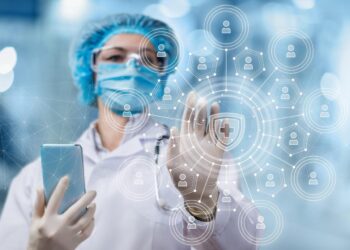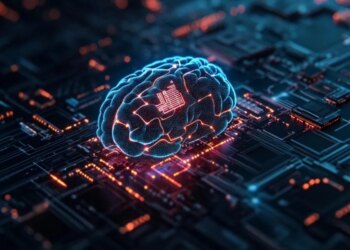In the 21st century, the greatest innovations are not just coming from silicon and code, but from the very building blocks of life itself. Biotechnology, a field that harnesses cellular and biomolecular processes to develop new technologies and products, is at the forefront of a scientific revolution. What was once a niche area of research has exploded into a powerful force that is transforming medicine, agriculture, and industry, promising to solve some of humanity’s most pressing problems. This comprehensive article delves into the profound breakthroughs of next-generation biotech, exploring the foundational technologies driving this shift, the diverse and often-unbelievable applications that are already emerging, and the immense ethical and societal challenges that lie ahead as we begin to engineer life itself.
For millennia, human interaction with biology was a process of discovery and adaptation. We observed the natural world, learned to cultivate plants for food, and used medicinal herbs for healing. The advent of modern biotechnology in the 20th century with the discovery of DNA and the development of antibiotics was a game-changer. But the technology was still a blunt instrument, and our ability to precisely manipulate life was limited. The next generation of biotech is fundamentally different. It is a world of unprecedented precision, where scientists can now read, edit, and even write the genetic code of living organisms with a level of accuracy that was once unimaginable. This shift from simple observation to active engineering is the core of the current biotech revolution.
The global interest in biotechnology is skyrocketing, with massive investments from both the public and private sectors. The COVID-19 pandemic, for example, showcased the incredible speed and power of modern biotech, with the development of mRNA vaccines in record time. This was not a lucky accident; it was a testament to decades of foundational research in genetic engineering and molecular biology. Today, the field is moving at an exponential pace. Scientists are not just developing new drugs; they are engineering new crops that can withstand climate change, creating living materials that can self-repair, and even exploring the possibility of bringing back extinct species. This is more than a technological shift; it is a profound societal one, where we are beginning to redefine our relationship with nature and the very essence of what it means to be alive.
The Technological Bedrock

The power of next-generation biotech is built on a sophisticated and integrated set of tools that allow scientists to interact with the very code of life.
A. CRISPR-Cas9
CRISPR-Cas9 is arguably the most revolutionary tool in modern biotechnology. It is a gene-editing technology that acts like a pair of “molecular scissors,” allowing scientists to precisely cut and edit DNA sequences. What makes CRISPR so powerful is its simplicity, affordability, and accuracy. It can be used to correct genetic mutations that cause diseases like cystic fibrosis and sickle cell anemia, and it is also being used to create new crops that are more resistant to pests and diseases. While the ethical debate around gene editing is still in its early stages, the power of CRISPR has opened up a new era of medical and agricultural possibility.
B. Synthetic Biology
Synthetic biology is an interdisciplinary field that seeks to design and construct new biological parts, devices, and systems, as well as to redesign existing biological systems for useful purposes. It is essentially “bio-engineering” at the cellular level. Synthetic biologists can use a computer to design a new DNA sequence and then synthesize that DNA in a lab. This can be used to create everything from bacteria that produce biofuels to microbes that can clean up oil spills. It is the ultimate expression of human creativity, where the medium is not stone or canvas, but life itself.
C. Advanced Biomanufacturing and 3D Bioprinting
The ability to manipulate living systems requires a new way of manufacturing. Biomanufacturing is the process of using living organisms, such as bacteria, yeast, or mammalian cells, to produce commercial products. This can be used to produce everything from insulin for diabetics to complex antibodies for cancer treatments. A fascinating new field within this is 3D bioprinting, where scientists can use a printer to create a three-dimensional living tissue, such as a human ear or a small organ, from bio-ink containing living cells. While still in its early stages, the long-term potential for this technology is to print a custom-made organ for a transplant patient, eliminating the need for a donor.
D. AI and Machine Learning in Drug Discovery
The development of a new drug is a long, expensive, and often-unsuccessful process. Artificial Intelligence (AI) and machine learning are now being used to accelerate this process by analyzing vast datasets of genetic information, protein structures, and chemical compounds. AI can predict which compounds are most likely to be effective against a particular disease, and it can help scientists to design new drugs that are more targeted and have fewer side effects. This use of AI is a game-changer, reducing the time and cost of drug discovery and bringing new medicines to market faster.
Diverse Applications of Next-Gen Biotech
The applications of next-generation biotech are not limited to a single field; they are being applied to a wide range of industries, creating new efficiencies and opportunities.
A. Medicine and Personalized Healthcare
In medicine, biotech is ushering in an era of personalized healthcare. Gene-editing technology like CRISPR can be used to correct the genetic mutations that cause a disease, providing a cure rather than just a treatment. New diagnostic tools can analyze a person’s DNA to predict their risk for certain diseases, allowing for a more proactive approach to health. And in the world of pharmaceuticals, biomanufacturing is being used to create new drugs that are highly targeted to a person’s specific genetic makeup, leading to more effective treatments and fewer side effects. This is a shift from a “one-size-fits-all” approach to a highly personalized and proactive one.
B. Sustainable Agriculture and Food Production
With a growing global population and the challenges of climate change, biotech is a critical tool for ensuring sustainable agriculture and food production. Scientists are using genetic engineering to create crops that are more resistant to pests and diseases, and that can grow in harsher climates with less water. They are also developing new crops that are more nutritious and have a higher yield. In the field of food production, synthetic biology is being used to create new sources of food, such as cultured meat that is grown in a lab, which could reduce our reliance on traditional livestock farming and its environmental impact.
C. Industrial and Environmental Applications
In industry, biotech is being used to create a new generation of sustainable and environmentally friendly products. Synthetic biology can be used to engineer microbes that produce biofuels from waste, or to create bacteria that can clean up oil spills and other environmental pollutants. New bio-based materials can be used to create everything from self-repairing plastics to biodegradable packaging. This is a shift from a world of toxic, unsustainable industrial processes to a world of clean, bio-based solutions.
D. Climate Change Mitigation and Carbon Capture
The same technologies used to engineer life can be used to combat climate change. Scientists are exploring the use of synthetic biology to engineer new organisms that can capture carbon from the atmosphere. They are also using biomanufacturing to create more efficient biofuels and to develop new materials that have a smaller carbon footprint. The ability to use biological systems to solve our environmental problems is a powerful and exciting new frontier in the fight against climate change.
The Ethical and Societal Challenges of Engineering Life

The power to engineer life brings with it a host of ethical and societal questions that we must address before the technology becomes ubiquitous.
A. The Ethics of Gene Editing and “Designer Babies”
The ability to edit the human genome is a medical marvel, but it also raises immense ethical questions. While using CRISPR to cure a genetic disease is widely accepted, what about using it to enhance a person’s physical or mental abilities? This is the debate over “designer babies,” where parents could potentially choose the genetic traits of their children. We will need to establish clear regulations and ethical guidelines to ensure this powerful technology is used to alleviate suffering, not to create a new form of genetic inequality.
B. The Biosecurity and Bioterrorism Threat
The same tools that can be used to cure disease can also be used to create a new one. The democratization of powerful biotech tools, combined with the power of synthetic biology, raises a major concern about biosecurity and bioterrorism. We need to develop new regulations, monitoring systems, and security protocols to ensure that these tools do not fall into the wrong hands and are not used to create a new generation of biological weapons. This is a critical challenge that requires a global and collaborative effort.
C. The Long-Term Environmental Impact
While biotech holds the promise of a more sustainable future, the introduction of genetically engineered organisms into the environment also carries a potential risk. What will be the long-term environmental impact of a genetically engineered crop that is resistant to pests and diseases? Could it lead to the loss of biodiversity or the creation of new, more resistant “superweeds”? The need for careful and rigorous testing of these organisms before they are released into the environment is paramount.
D. Public Perception and Acceptance
The public’s perception of biotechnology is often a mix of hope and fear. Concerns about genetically modified organisms (GMOs) in our food supply and the ethical implications of human gene editing are widespread. The challenge for the biotech community is to engage in a transparent and open dialogue with the public, to build trust and acceptance for this technology, and to ensure that it is developed in a way that is consistent with our shared values and ethical principles.
Conclusion
In conclusion, next-generation biotechnology is a transformative force that is fundamentally reshaping our relationship with life itself. By providing us with the tools to read, edit, and write the genetic code of living organisms, this field is moving us beyond a world of simple observation and into an era of active engineering. The technological bedrock of this revolution—from the precision of CRISPR and the creativity of synthetic biology to the power of biomanufacturing and the intelligence of AI in drug discovery—is opening up a new universe of possibilities. The applications of this technology are diverse and profound, promising to revolutionize medicine with personalized healthcare, to create a more sustainable future with bio-based agriculture and materials, and to provide new tools for the fight against climate change.
The power to engineer life brings with it a host of immense ethical and societal challenges that we must address with foresight and care. The debate over gene editing, the need for new biosecurity protocols, and the long-term environmental impact of genetically engineered organisms are not footnotes; they are central to the responsible development of this technology. We must navigate this path with a new ethical framework, one that ensures that this power is used to alleviate suffering, not to create a new form of inequality, and to protect the planet, not to endanger it.
The future of biotechnology is a journey that will be defined not just by what we can do, but by what we should do. It is a moment where the most powerful tools ever created are in our hands, and the choices we make today will shape the very essence of what it means to be alive for generations to come. The era of a new form of creation is here, and it is forged not in stone, but in biology.





